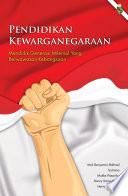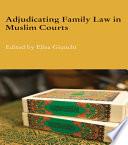
Pendidikan Kewarganegaraan
Mendidik Generasi Milenial Yang Berwawasan Kebangsaan
Pendidikan Kewarganegaraan pada hakikatnya adalah suatu proses INDONESIANISASI, proses meng-indonesia-kan orang-orang Indonesia, dalam hal ini para ‘mahasiswa’, agar sungguh menjadi Indonesia. Maka keseluruhan materi kuliah ini dirancang untuk mengantar para mahasiswa pada suatu ‘penemuan-diri dan penegasan-diri’ sebagai orang Indonesia: AKU INDONESIA – AKU PANCASILA. Seluruh materi dalam perkuliahan ini terdiri dari 11 bab yang secara singkat dapat diuraikan sebagai berikut: Bab 1 Pendahuluan berisi suatu pengantar umum ke dalam materi kuliah Pendidikan Kewarganegaraan sebagai suatu proses INDONESIANISASI, proses meng-indonesia-kan orang-orang Indonesia, dalam hal ini mahasiswa agar mereka sungguh menjadi “Orang Indonesia”. Terkandung maksud “pembentukan karakter keindonesiaan” para mahasiswa sebagai generasi muda pemimpin masa depan bangsa dan negara. Pendidikan Kewarganegaraan dipandang sebagai sarana yang sangat strategis untuk menanamkan nilai-nilai kerakyatan, kebangsaan, dan kenegaraan pada generasi muda. Penanaman nilai-nilai ini melibatkan seluruh aspek kepribadian, dalam arti: harus diketahui dan dipahami ‘akal-budi’ (koqnitif), diresapkan dalam hati, dihayati dan dicintai (afeksi), dan diwujudkan dalam perbuatan nyata (psikomotorik). Hasilnya ialah kita memperoleh sosok-sosok warga negara yang berkualitas unggul: unggul akal budinya, unggul nuraninya dan unggul keterampilan kewarganegaraannya. Bab 2 hingga Bab 7 menyajikan materi-materi terkait Indonesia sebagai bangsa yang menegara. Di dalamnya dikemukakan segala hal ihwal kerakyatan, kebangsaan dan kenegaraan Indonesia, mulai dari : (1) negara dan konstitusi, (2) hak dan kewajiban warga negara dan negara, (3) identitas nasional dan integrasi nasional, (4) ciri Indonesia sebagai sebuah negara hukum yang bersifat demokratis, dan (5) otonomi daerah sebagai suatu kebijakan politik ketatanegaraan orde reformasi, yang menerapkan asas desentralisasi dalam politik administrasi pemerintahan. Tujuan bab-bab kebangsaan dan kenegaraan ini dimaksudkan untuk membekali para mahasiswa dengan materi-materi seputar Negara Indonesia, agar Character Building yang diupayakan melalui Pendidikan Kewarganegaraan ini mempunyai dasar ke-ilmu-an yang kokoh secara ontologis, epistemologis dan axiologis. Berbekalkan materi-materi kebangsaan dan kenegaraan dalam Bab 2 hingga Bab 7, buku ini membawa mahasiswa memasuki 3 bab puncak, yaitu: Bab 8 tentang Geopolitik Indonesia, yang lazim disebut Wawasan Nusantara; Bab 9 tentang Geostrategi Indonesia, yang lazim disebut Ketahanan Nasional, dan Bab 10 tentang Bela Negara. Ketiga bab ini disebut “puncak-puncak” mata kuliah Pendidikan Kewarganegaraan, karena sebagai suatu proses Indonesianisasi, Pendidikan Kewarganegaran pada akhirnya harus menyadarkan mahasiswa bahwa watak kepribadian Indonesia yang telah terbentuk dalam diri mereka masing-masing harus berpuncak pada suatu “komitmen dan bakti” pada Nusa dan Bangsa Indonesia yang sedang membangun, dengan berpartisipasi aktif dalam pembangunan nasional sesuai profesi masing masing berdasarkan ‘wawasan Nusantara’ sebagai geopolitik nasional Indonesia. Komitmen dan bakti terhadap Nusa dan Bangsa ini, selain mencerminkan semangat nasionalisme dan patriotisme, juga sekaligus berfungsi membangun suatu postur ‘ketahanan nasional’ yang tangguh, tahan uji, dan tahan banting di tengah rongrongan aneka ragam ancaman, tantangan, hambatan dan gangguan, baik dari dalam negeri maupun dari luar negeri, langsung maupun tidak langsung, nyata maupun tidak/belum nyata, bersifat militeristik maupun nir-militeristik. Itulah semangat BELA NEGARA. Dari antara aneka ragam masalah nyata yang merongrong tubuh bangsa dan negara ini, salah satu yang sangat potensial menghancurkan Indonesia dari dalam adalah KORUPSI, KOLUSI dan NEPOTISME. Maka seluruh materi ditutup dengan Bab 11 tentang MEMBANGUN BUDAYA ANTIKORUPSI. Budaya antikorupsi harus dikembangkan di kalangan generasi muda, agar pada saatnya mereka memimpin bangsa dan negara ini, mereka setidak-tidaknya telah memiliki suatu ‘kebiasaan yang jauh dari perilaku koruptif. Demikian SINOPSIS materi perkuliahan Pendidikan Kewarganegaraan di Unika Atma Jaya Jakarta. Semoga berkat Tuhan Yang Mahakuasa menyertai pelaksanaan perkuliahan ini demi Indonesia Maju.
- ISBN 13 : 6235298153
- ISBN 10 : 9786235298153
- Judul : Pendidikan Kewarganegaraan
- Sub Judul : Mendidik Generasi Milenial Yang Berwawasan Kebangsaan
- Pengarang : Mali Benyamin Mikhael, Mali Benyamin Mikhael, Mali Benyamin Mikhael, Mali Benyamin Mikhael, Sutrisno, Mukka Pasaribu, Ronny Samsulhadi, Henry Valentino, Sutrisno, Mukka Pasaribu, Ronny Samsulhadi, Henry Valentino, Sutrisno, Mukka Pasaribu, Ronny Samsulhadi, Henry Valentino, Sutrisno, Mukka Pasaribu, Ronny Samsulhadi, Henry Valentino, Mali Benyamin Mikhael, Mali Benyamin Mikhael, Sutrisno, Mukka Pasaribu, Ronny Samsulhadi, Henry Valentino, Sutrisno, Mukka Pasaribu, Ronny Samsulhadi, Henry Valentino, Sutrisno, Mukka Pasaribu, Ronny Samsulhadi, Henry Valentino, Sutrisno, Mukka Pasaribu, Ronny Samsulhadi, Henry Valentino, Sutrisno, Mukka Pasaribu, Ronny Samsulhadi, Henry Valentino, Sutrisno, Mukka Pasaribu, Ronny Samsulhadi, Henry Valentino, Sutrisno, Mukka Pasaribu, Ronny Samsulhadi, Henry Valentino, Sutrisno, Mukka Pasaribu, Ronny Samsulhadi, Henry Valentino, Sutrisno, Mukka Pasaribu, Ronny Samsulhadi, Henry Valentino, Sutrisno, Mukka Pasaribu, Ronny Samsulhadi, Henry Valentino, Sutrisno, Mukka Pasaribu, Ronny Samsulhadi, Henry Valentino,
- Kategori : Study Aids
- Penerbit : Penerbit Universitas Katolik Indonesia Atma Jaya
- Bahasa : id
- Tahun : 2022
- Halaman : 407
- Google Book : https://play.google.com/store/books/details?id=rJGFEAAAQBAJ&source=gbs_api
-
Ketersediaan :
Pendidikan Kewarganegaraan pada hakikatnya adalah suatu proses INDONESIANISASI, proses meng-indonesia-kan orang-orang Indonesia, dalam hal ini para ‘mahasiswa’, agar sungguh menjadi Indonesia.








